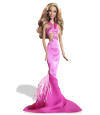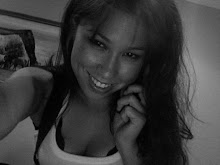"SO MEXICANS ARE TAKING JOBS FROM AMERICANS"
Jimmy santiago baca-
This poem stood out to me because of how baca uses a sort of sarcasm. He says " oh yah they come with rifles and horses and ask for your job"? This poem is about americans stereotyping mexicans for all taking their jobs. But in honesty, mexicans just want ANY job to make money. Americans really actually think they're taking their jobs, its funny. When in reality, I dont think any americans will work in the fields for 4$ an hour for 12 hrs a day, or work fastfood for 6.75an hour. MIddle class americans will NEVER take those jobs. Even if all the illegal immigrants were somehow (unrealsitcly) transportedto mexico, i can guarentee that the only people who would take those jobs are the poor people and the young kids. So what are people complaining about? It is true that people tend to blame the mexicans (victims) then to blame the higher people who are causing poverty. Baca portrays an exaggerated way of "taking the americans jobs" by saying they will mug them, put a knife to their throats. It's like these people are whining and protesting and stereotyping mexicans, when in reality, they just want a job, simple as that. they dont give a crap about what kind of job, how much, how many hours, they just want a job. My favorite part of this poem is " I hear only a few people got all the money in this world, the rest count their pennies to buy bread and butter". This is refereing to the multi-millionares who are the ceo's and executives that don't give a f*** about the poor while the poorest people in the wolrd are counting their pennies and trying to survive. This is a GREAT poem.

#2 chp. 20
" on the amtrak from boston to New York City"-Sherman Alexie
This poem is very strong and powerful to me. To me, this poem is about how ignorant people can be. People take advatange of others. Like how the white's took advantage of the american indians and took their land away, and killed them. Then we have the guts to say this is our land, our country. People actually say they are "natives" and true, born american, pure blood americans. This always makes me laugh, because in reality, they are ignorant idiots. They have no idea that we took this land from native americans. As we also took some land from Mexico.Native americans are told to live on certain reservations and leave behind their traditions and moral values. Alexie displays this through this poem. He expresses the anger native americans feel towards this country and the "americans" who talk about their founders, and their great american leads and landmarks. A strong part in this poem is when the man says " I could have told her I dont igve a shit (about the pond), I know hte INdians were living stories around that pond before the Walden's granparents were born." But he explains that he respects her, and doesnt want to break her heart. He is forced to be this person to blend in. This poem allows me to feel the pain and anger Native Americans must feel towards white people. It almost makes me mad as well even though i'm not native american. The end of the poem is a perfect realization for people to understand how upset the natives are when he says " for what I would do and say the next time someboday from the enemy thought I was one of their own".

2 poems from chapter 23)
"On being brought from Africa to America"
-Wheatley
This poem has some very old difficult, language, but I still tried to understand what it was about. This poem to me is mostly about the bible and religion, being brought to africa and he changes one had to make- and especially about Cain and Abel. "In the text, some christians developed the idea the color of africans was the mark of cain. As Cain killed abel and that "the lord set a mark upon cain". The biblican text explicitly says that the mark was to pretect cain from someoen who might take vengeance on him, but does ot say what mark it was" (577).The first line states about a pagan land- a pagan refering to someone who is not from mainstream religion (christiantiy, etc.) "Taught my benighted soul to understand.” This line of soul tells us that her soul once tarnished and scared by something or someone has been redeemed to something that is functional."

#2) " I heard a fly buzz-when I died"-Dickinson
This poem is another one of Dickinsons poem about death. I wonder why she was so endaged and interested in writing about death? This poem is about a woman who is about to die, and she is lying in her bed as her friends and family watch her die-"The eyes around,-and braths were gathering firm". She states something about a "king" which to me, stands out as some kind of God who is going to take her away, or a higher power. The buzzing of the fly emplies how death just comes and goes, it's not something to fear, but just something that happens. Like its nothing, it's not some crazy experience that people think it is,seeing "the light" and feeling a power come and lift you away to heaven.To me, Dickinson is implying that there is no afterlife, because she says the "window failed" ( like the window to heaven or the light). This poem reminded of me of "Because I could not stop for death". She also implies the simpleness of death as she "willed her keepsakes, signed away", just like that she is giving away everything she ever owned because she is dieing. Unlike the egyptians, who were burried with all their belongings. They worshiped death and saw death as a window to another world. There was ceremonies for the dead in egypt and other cultures today. Dickinson in no way is saying that, but just the opposite. Death is a cycle of life. We live to die sort of thing.

5th poem from any chp 20-23
Chp 20-"The Melting pot" randall
This poem is about america, and our melting pot of different cultures. This poem is about the "melting pot theory" that we all mesh with eachother to form who we are. We are all made of many many geneartions of different cultures and ethniticies. In the 2nd stanza, it talks about how all these different cultures and people come in with their names from their countries like " juan, ivan, giovanni" and all eventually call them selves "JOHN". This is very true! For example, when I go to nail salons, i'd say about 90% of the workers are vietnemese or some sort of asian culture, and they have these very americanized names like "tammy, tracy" but When i ask them for their real names they are embarassed to reply " my-ling" or something. When I read this, I understood that we as americans accept all cultures from all over the world, especialy europeans-greeks-czechks-scot- and we welcome them with open arms. But that we dont accept black people-"we dont want your black stain" and they kick him out. The black person wont accept to be like everyone else and says " I dont give a damn, shorve your old pot, you can like it nor that, I'll just be just What i am". Black people don't try to be like everyone else, and be white. They are who they are. It is the whites who forced them to come here hundreds of years ago on ships.The theme i took from this poem is that no matter where you come from all over the globe, and you come to America- in one way or another-weather it be changing your name, dressing liek americnas, speaking like americans, eating american food- you can pretend to be something you're not here.





